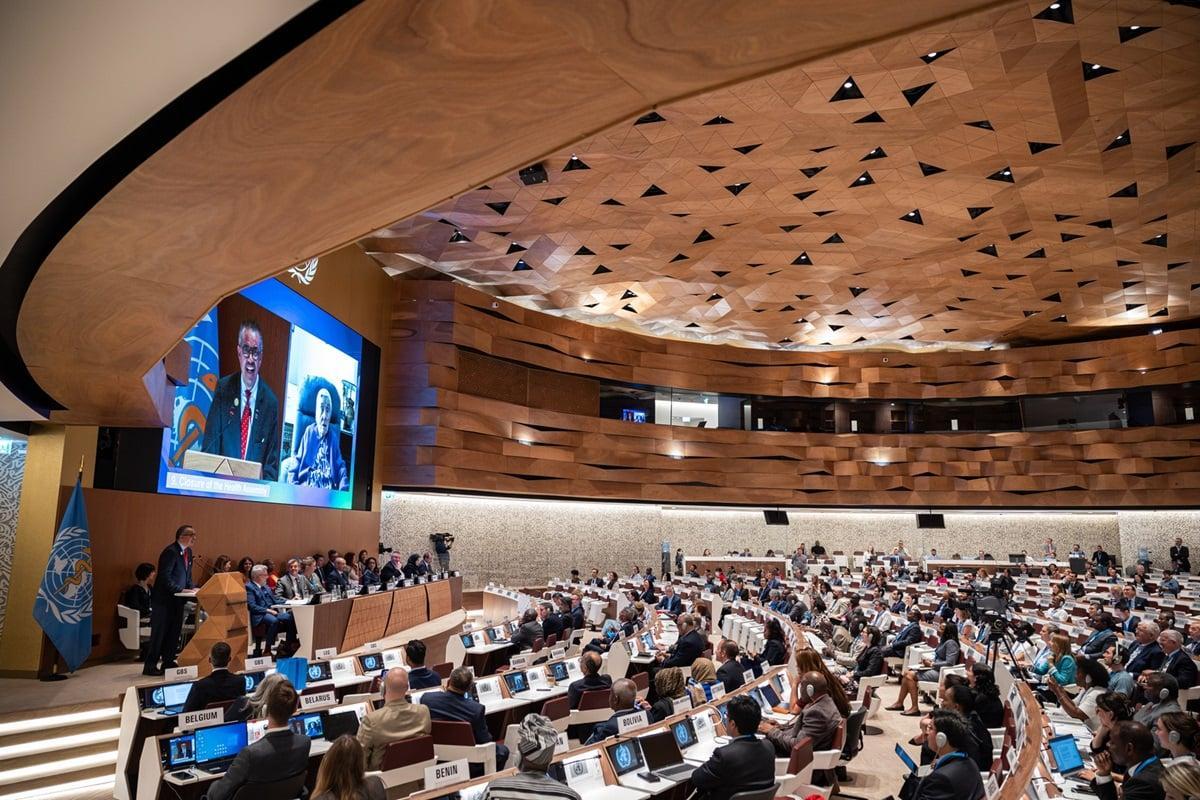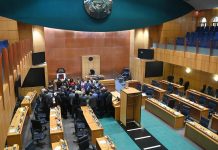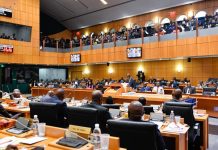Africa-Press – Botswana. African Health leaders have been challenged to enhance pandemic preparedness in the interest of equitable access to health care for all.
Addressing a virtual press briefing in Geneva, Switzerland ahead of the Seventy-seventh World Health Assembly (WHA77) on Friday, African leaders spoke in unison and noted that addressing the components of pandemic preparedness comprehensively could help African countries prepare and respond to pandemics, ultimately reducing the impact on human health and society.
The press briefing was organised by Amref Health Africa in partnership with Africa CDC and WHO Regional Office for Africa, and the Bill & Melinda Gates Foundation Africa Office.
World Health Organisation Regional Director for Africa, Dr Matshidiso Moeti said pandemic preparedness that involved a comprehensive approach to mitigating the impact of infectious disease outbreaks on public health, social systems and the economy should be addressed to better prepare for and respond to unique challenges faced by the continent.
She said it was important for African health leaders to advocate for enhanced pandemic preparedness as it would build resilient health systems and protect the well-being of communities across the continent.
We should work on strengthening surveillance systems, health care infrastructure, community engagement and cross border collaboration so as to protect the health and well-being of our populations, Dr Moeti said.
She also emphasised the importance of discussing the outcome of the Working Group on amendments to the International Health Regulations (2005) and the progress made by the Intergovernmental Negotiating Body (INB) in drafting and negotiating a WHO convention or agreement on pandemic prevention, preparedness, and response.
“We have been working closely with the Africa CDC and other partners, supporting the global discussions and negotiations to ensure that our member states in the African Region are fully engaged in the working group and INB negotiations,” said Dr Moeti, adding that they wanted to make sure that the region’s context and specific needs were taken into account.
Dr Moeti said during the Seventy-seventh World Health Assembly, WHO would engage in discussions aimed at accelerating progress towards reducing maternal and child health issues, further stating that between 2000 and 2020, maternal mortality dropped by about 44 per cent in the WHO African Region.
She highlighted that one of WHO key focus areas was assisting countries in building capacity to manufacture essential health products locally, noting that progress had been made so far with WHO providing technical support and expertise to countries across the continent.
Nevertheless, she pointed out that sustainable local production required a multidimensional, coordinated, and collaborative approach.
She said WHO continued to identify opportunities and agree on concrete interventions to support local African manufacturers.
Amref Health Africa group CEO Dr Githinji Gitahi said access to quality health services remained a significant concern across Africa, exacerbated by climate crisis.
“The region is experiencing the adverse effects of climate change, impacting the urgency of achieving Universal Health Coverage ” said Dr Gitahi.
He highlighted that Kenya had been particularly hard-hit by climate crisis, with devastating floods causing loss of life and displacing thousands, including pregnant women, a direct consequence of the climate change crisis.
He, therefore, said it was imperative that the challenges facing Africa were recognised and addressed collectively.
“Over 930 million people, about 12 per cent of the world’s population spend at least 10 per cent of their household budget to pay for health care” said Dr Gitahi.
He said with the poorest people largely uninsured, health shocks and stress currently pushed around 100 million people into poverty every year, with the impacts of climate change worsening the trend.
Dr Gitahi reiterated that it was Africa Health’s collective responsibility to support and protect the vulnerable, ensuring equitable access to health care for all.
The Seventy-seventh World Health Assembly will from May 27 to June 1 serve as a platform to advocate for global action on urgent health issues, including climate change, infectious diseases, health equity, and access to health care, among other unprecedented public health challenges in Africa.
The health assembly will also address other key areas of concern, including the progress and challenges of Universal Health Coverage, the escalating silent epidemic of non-communicable diseases, maternal health, and child mortality.
Minister of Health, Dr Edwin Dikoloti is among the health leaders attending the assembly and he is expected to assume the presidency of the 77th World Health Assembly, effective May 27. Dr Dikoloti will be at the helm for a year.
For More News And Analysis About Botswana Follow Africa-Press






